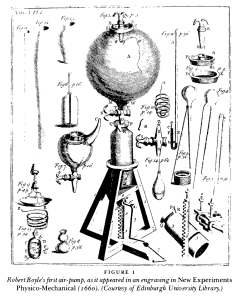Emergent Forms of Life: Anthropologies of Late or Postmodernities
by Michael M.J. Fischer
[Fischer, Michael M. J. 1999. “Emergent Forms of Life: Anthropologies of Late or Postmodernities.” Annual Review of Anthropology 28 (1):455–78.]
Points
Really good overview of social theory and anthropology of the po-mo 1990s, and brief encapsulation of general social theory in the twentieth century
- “Emergent forms of life’ acknowledges an ethnographic datum, a social theoretic heuristic, and a philosophical stance regarding ethics.
- The ethnographic datum is the pervasive claim … that traditional concepts and ways of doing things no longer work …
- The social theoretic heuristic is that complex societies … are always compromise formations among … emergent, dominant, and fading historical horizons.
- The philosophical stance toward ethics is that “giving grounds” for belief comes to an end somewhere and that “the end is … a sociality of action, that always contains within it ethical dilemmas or … the face of the other.” (456)
-
Anthropologies of late modernity … provide challenges for all levels of social, cultural, and psychological theory, as well as for ethnographic field methods and genres of writing. There are three key overlapping arenas of attention.
- The continuing transformation of modernities by science and technology,
- The reconfiguration of perception and understanding, of the human and social sensorium, by computer-mediated and visual technologies and prostheses.
- The reconstruction of society in the wake of social trauma caused by world war and civil and ethnic wars; collapse of command economies; massive demographic migrations and diasporas; and postcolonial and globalizing restructurings of the world economy, including the production of toxics and new modalities of long-term risk.” (457-458)
- “The general social theories of modernity in the nineteenth and early twentieth centuries have to do with the dynamics of class society and industrial processes (Karl Marx); with bureaucratic, psychological, and cultural rationalization (Max Weber); with repression and redirection of psychic energy from gendered and familial conflicts (Sigmund Freud, Max Horkheimer, Theodor Adorno); with abstraction of signs and tokens of exchange (CS Pierce, F Saussure, Georg Simmel, Thorstein Veblen); and with the complexification of the conscience collective with the division of labor (Emile Durkheim, Marcel Mauss).
- In contrast, general theories of the postmodern or late modern era stress the processes and effects of the “third industrial revolution” (electronic media, silicon chip, molecular biology), as well as of decolonization, massive demographic shifts, and the cross-temporal and cross-cultural referentiality of cultural forms.” (458)
- “computer-mediated communication provides also a design studio for social theory. It provides materials for thinking about a conjuncture of two kinds of science that can no longer do without one another: (a) explanatory structures that are breaks with normal experience, that can only be arrived at through the prostheses of instruments, experiments, models, and simulations, and (b) experiential, embodied, sensorial knowledge that acts as situated feedback.” (469)
- “No longer is it possible to speak of modernity in the singular. …
- “The rubric “alternative modernities” acknowledges the multiple different configurations that modernities have taken and the recognition that modernization and globalization are not homogenizing processes.” (470)
- “Among the important makers of these alternative modernities are the tremendous disruptions of the second half of the twentieth century: World War II, the struggles for decolonization, the collapse of the Soviet empire and its command economies, civil wars in Africa and Cambodia, and the “disappeared” in Argentina.” (471)
- Composing ethnographically rich texts on emergent forms of life generated under late- and postmodernities that can explore connections between changing subjectivities, social organization, modes of production, and symbolic or cultural forms, is a challenge that the anthropological archive is increasingly addressing. … The new is never without historical genealogies, but these often require reassessment and excavation of their multiplicity.
Abstract
Anthropologies of late modernity (also called postmodernity, postindustrial society, knowledge society, or information society) provide a number of stimulating challenges for all levels of social, cultural, and psycho- logical theory, as well as for ethnographic and other genres of anthropological writing. Three key overlapping arenas of attention are the centrality of science and technology; decolonization, postcolonialism, and the reconstruction of societies after social trauma; and the role of the new electronic and visual media. The most important challenges of contemporary ethnographic practice include more than merely (a) the techniques of multilocale or multisited ethnography for strategically accessing different points in broadly spread processes, (b) the techniques of multivocal or multiaudience-addressed texts for mapping and acknowledging with greater precision the situatedness of knowledge, (c) the re- working of traditional notions of comparative work for a world that is increasingly aware of difference, and (d) acknowledging that anthropological representations are interventions within a stream of representations, mediations, and unequally inflected discourses competing for hegemonic control. Of equal importance are the challenges of juxtaposing, complementing, or supplementing other genres of writing, working with historians, literary theorists, media critics, novelists, investigative or in-depth journalists, writers of insider accounts (e.g. autobiographers, scientists writing for the public), photographers and filmmakers, and others.”
Continue reading Fischer – Emergent Forms of Life
